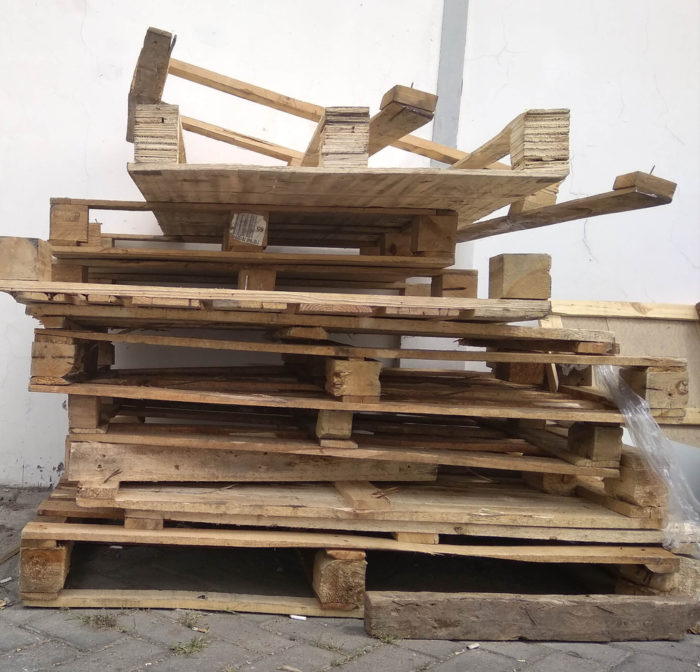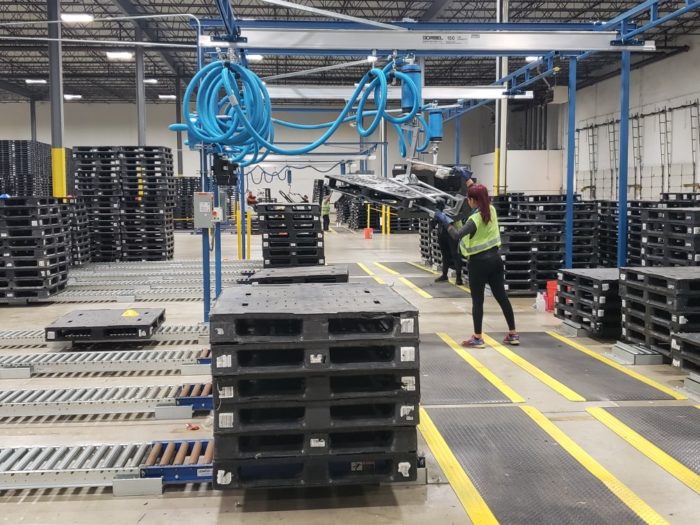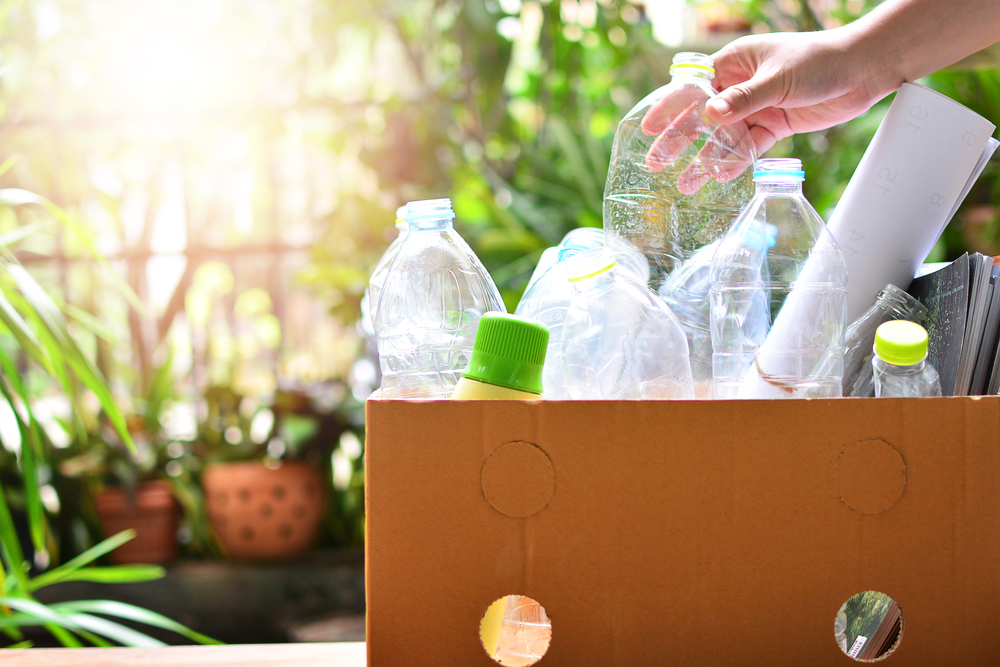Circular economies have always been with us. The world’s natural systems are constantly recycling minerals, nutrients, and energy. Early human civilizations developed with the help of these natural cycles. What has been changing since the industrial revolution is that the global economy has vastly outstripped the pace at which these natural systems can work. The development of synthetic materials like the plastics used for single-use packaging has created a glut of waste that the natural environment can’t process on anything other than geologic timescales. It is a growing problem with potentially grave consequences, and to deal with it, companies and consumers have begun seeking to create circular business models that reuse and reprocess materials at a pace that keeps up with their production.
A great deal of the single-use plastic created every year is used for packaging. Due to its lightweight strength, reliability in transit, and durable, sterile nature, plastic is not easily replaced or substituted. However, the circular economy and packaging are inextricably linked, and manufacturers of consumer packaged products—and the package makers themselves—are taking the initiative to come up with solutions for the future.
The Circular Economy and Packaging
 Sustainable practices are based on the three Rs of reducing, reusing, and recycling. For decades, the main emphasis has been on recycling. However, companies are now using all of these methods to create a circular supply chain by:
Sustainable practices are based on the three Rs of reducing, reusing, and recycling. For decades, the main emphasis has been on recycling. However, companies are now using all of these methods to create a circular supply chain by:
- Minimizing Plastic: Major efforts are underway to reduce the amount of non-recyclable plastic used in product packaging, and even remove it entirely if possible. If complete removal isn’t an option, then efforts are made to ensure that the plastic used is relatively easy to recycle or is biodegradable.
- Reusing Product Packaging: Pilot projects are underway in which consumers simply refill a container with more product rather than buying a new container. These containers can be plastic, but in some cases they’ve been replaced with steel, glass, or other materials that are designed to last for years.
- Improving Recycling Technology: It’s common for different types of plastic to be used in the same packaging. A stiff plastic might create structure while a plastic film or label identifies the product. This makes recycling more difficult. Efforts to simplify packaging make recycling easier, and new recycling techniques make it easier to separate plastics of different types from each other and from contaminants.
The packaging used for individual consumer goods is changing, and so must the packaging and equipment that bring these products to retailers in the first place.
Plastic waste, particularly when it intrudes into the natural environment, is one of the most pressing environmental concerns facing consumers, governments, and corporations. However, it is not the only loop that needs to be closed in the supply chain in order to build a truly circular economy. The packaging used for individual consumer goods is changing, and so must the packaging and equipment that bring these products to retailers in the first place.
Creating Circular Economies in the Logistics Chain
 The business model that prevailed for much of the previous century was a linear one. A company manufactured a product, the consumer bought it and disposed of packing and packaging materials in a landfill. The same has been true of the logistics chain, with products shipped in cartons packed onto pallets and wrapped with plastic. All of this packaging has traditionally been sent to a landfill after the pallets are unloaded at their destination. Only one of these shipping materials is now regularly recycled:
The business model that prevailed for much of the previous century was a linear one. A company manufactured a product, the consumer bought it and disposed of packing and packaging materials in a landfill. The same has been true of the logistics chain, with products shipped in cartons packed onto pallets and wrapped with plastic. All of this packaging has traditionally been sent to a landfill after the pallets are unloaded at their destination. Only one of these shipping materials is now regularly recycled:
???? Cardboard. It’s a normal part of working in a warehouse—and profitable for all involved—to bale used cardboard cartons for recycling.
???? Plastic Film. The plastic wrap that stabilizes the load on the pallet is rarely recycled (even though it is recyclable). The solution is to implement a recycling program for plastic film internally and find recycling centers that will take it for reprocessing.
???? Wood Pallets. The wood pallets that many products ship on have a limited lifespan for reuse. The wood itself cannot be recycled directly into another pallet, and maintaining the pallets requires using more wood for repairs. Cutting wood for pallets and pallet repairs actually removes an important means of carbon sequestration from the natural environment.
Proper tracking and recycling of plastic pallets keep them in an environmentally friendly circular system.
To improve the typical linear pallet model, many supply chains are choosing to use plastic pallets instead of wood ones. Unlike single-use, one-way wood stringer pallets, plastic pallets are made to be reused over and over again, and at the end of their long lifespan can be recycled directly into a “new” pallet. Since they are valuable assets, control of a high-quality plastic pallet at all times is incentivized, leading to far less waste from broken, waylaid, or discarded pallets. Proper tracking and recycling of plastic pallets keep them in an environmentally friendly circular system. Their greening effect is even further reaching: plastic pallets’ lighter weights can help to increase the average fuel mileage for semi-trucks, reducing CO2 emissions—and their durability helps reduce product damage during transportation, keeping the amount of wasted product low.

Plastic pallet pooling is a good example of an existing circular economy.
The main drawback of plastic pallets is the administrative hassle needed to keep track of them and arrange for their return back to production sites. However, a plastic pallet pool can manage this for their customers. And since they have many clients, a pallet pooling provider can also avoid empty transportation legs, further optimizing the use of fuel in the supply chain. Plastic pallet pooling is a good example of an existing circular economy and a model for how linking the circular economy and packaging for products can bring a more sustainable future.
iGPS is the market leader in plastic pallet pooling. We rent a high-quality plastic pallet and utilize a network of clients and depots across North America to support a circular economy. To make the switch to a GMA spec reusable plastic pallet that makes better use of resources, give our team a call at 1-800-884-0225, email a specialist at switch@igps.net, or visit our contact page.



